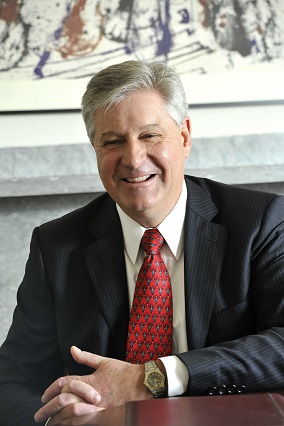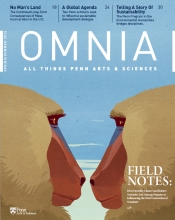This month marks the completion of my third year as dean of Penn Arts and Sciences, a fact which I’m finding hard to believe. As a long-time academic, I’m fully immersed in the cycle of events that comprise an academic year: the arrival of students, the start of classes, midterms and finals, publications and conferences, recognition of accomplishment, all topped off by graduation. As dean, adding in the task of managing the budget for our $500 million enterprise and overseeing recruitment and retention for our nearly 500 faculty, the rhythm that makes up each year is no less predictable—just a bit more complex.
But as dean I also understand that within the predictable cycle of the academic calendar, there is movement forward. Over the past two years, this momentum has been provided by the School’s strategic plan, Foundations and Frontiers.
As the 2015-2016 academic year drew to a close, examples of this progress were easy to find. Senior research and capstone presentations this year, like every year, demonstrated the excellence of our students through topics as diverse as a Visual Studies project on the cultural politics of representations of Israel and Palestine and a biology major’s research on the neuroscience of song production in birds. But looking beyond the excellence of individual students, we also see that there are new avenues open for them to pursue. This year, the first cohort of students graduated from the Vagelos Integrated Program in Energy Research (VIPER). The outstanding projects these students presented reflect the impact of this program’s rigorous curriculum, combined with mentorship and the opportunity to gain research experience in cutting-edge labs.
VIPER also speaks to one of the key priorities of the strategic plan: our focus on Energy, Sustainability and the Environment. This spring has given me a number of reasons to be excited about this topic. I had the pleasure of discussing the emerging area of environmental humanities at a recent panel discussion on campus, and I can say with conviction that humanistic disciplines add a necessary dimension to the conversation on sustainability and our relationship with the environment, and that the Penn Program on Environmental Humanities is in a unique position to lead in these conversations.
In the final weeks of the academic year, I also got the incredible news that our energy and sustainability initiative is receiving transformational support from Roy and Diana Vagelos, allowing us to establish the Vagelos Institute for Energy Science and Technology (p. 6). The new Vagelos Institute will bring together world-class researchers and dramatically expand Penn’s ability to pursue sustainable solutions to our energy needs.
With the momentum that comes from support like this, the intellectual innovation of our faculty, and programs like VIPER, I know that where we are with energy in 5 years will be very different from where we are now. I anticipate much the same progress in all the priorities identified in our strategic plan. So while the coming academic years will undoubtedly proceed according to their well-established rhythm, I know that our forward progress will continue.




